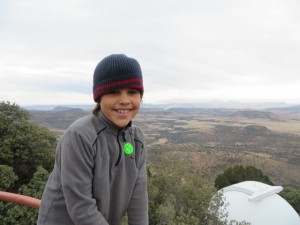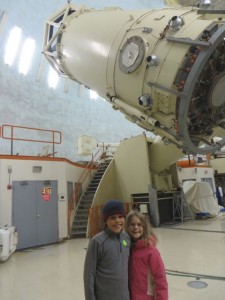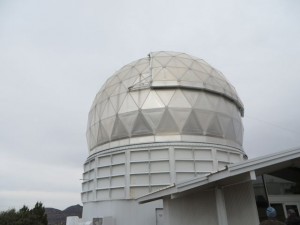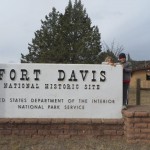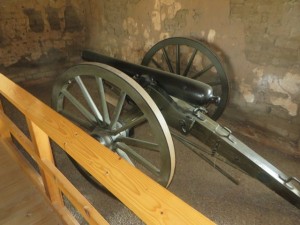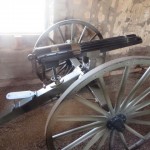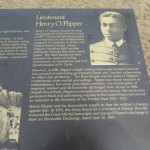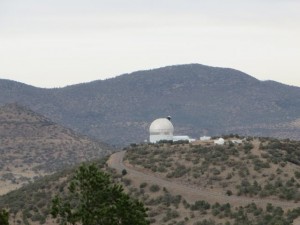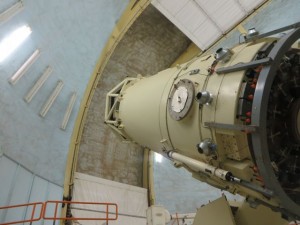Originally, we were going to head to Carlsbad Caverns after Albuquerque, but changed our plans with the temps being in the 20/30s and freezing fog. We decided to head to Big Bend, but stop in Fort Davis, Texas for 2 nights. We planned on trying to make it to McDonald Observatory(it has some of the darkest skies in the US) for the 7pm Star Party. The Star Party is a nighttime program where you learn about the constellations and they are pointed out, as well as, viewing through the telescopes. Sometimes you can even see Saturn’s rings! Oh, I wanted to go, unfortunately, we did not realize we would be moving into C.S.T. there, so we did not make the night program. It is only offered twice a week.
The next day we started at Fort Davis, which is a National Historical Site. Fort Davis was a key defense fort in west Texas. From 1854 to 1891, troops stationed at the post, protected emigrants, freighters, mail coaches and travelers on the San Antonio-El Paso Road. The San Antonio-El Paso road was the most southern route to the west and the gold fields of California. Primarily, they were protecting the travelers from the Comanche and Apaches. It is one the best remaining examples of a frontier military post.
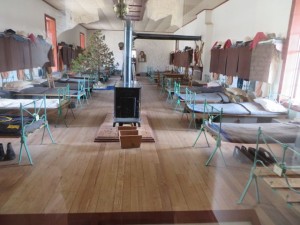
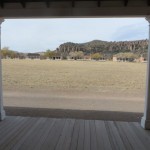
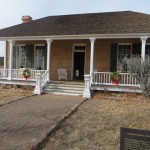
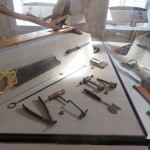
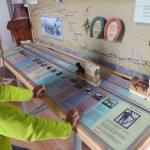
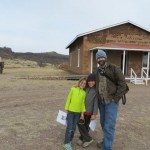
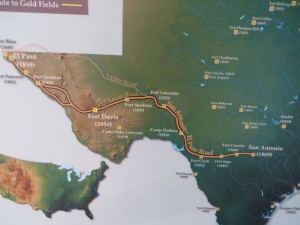
We ate lunch in the car on the way to the McDonald Observatory for the last tour of the day. We were the only ones on our tour, so it was like a private tour. We learned about the history of the Sun, its formation, and what they expect the Sun to do over its expected 5-6 billion year remaining “lifetime”. It was cloudy or we would have seen a live feed from the sun, but they showed us a still picture from the day before. We learned so much! Did you know the sun is 108 Earths wide?
After the sun presentation, we headed up the hill in a shuttle to the top of Mt. Locke to 107″ dome. We got to see the 107″ telescope and hear about its history. Then we headed over the the Hobby Eberly Telescope. They were working on it the day we visited, because they are going to start a 3 year project to search for dark energy. They will collect data on at least 1 million galaxies that are 9 billion to 11billion light years away, yielding the largest map of the universe ever produced! Isn’t that incredible and mind boggling?
